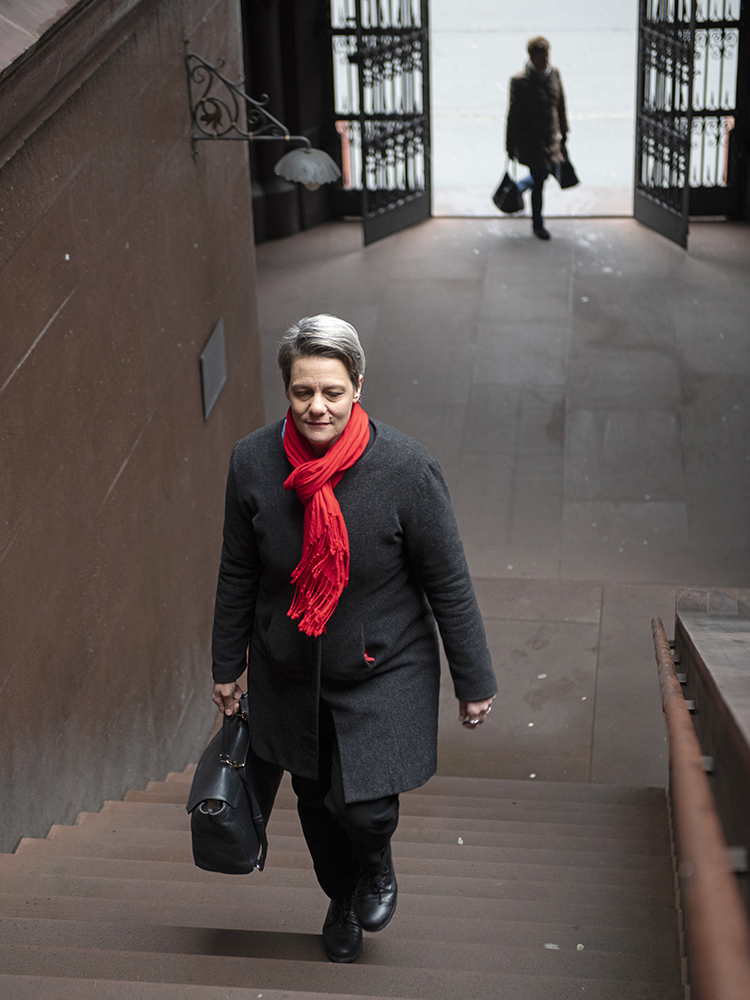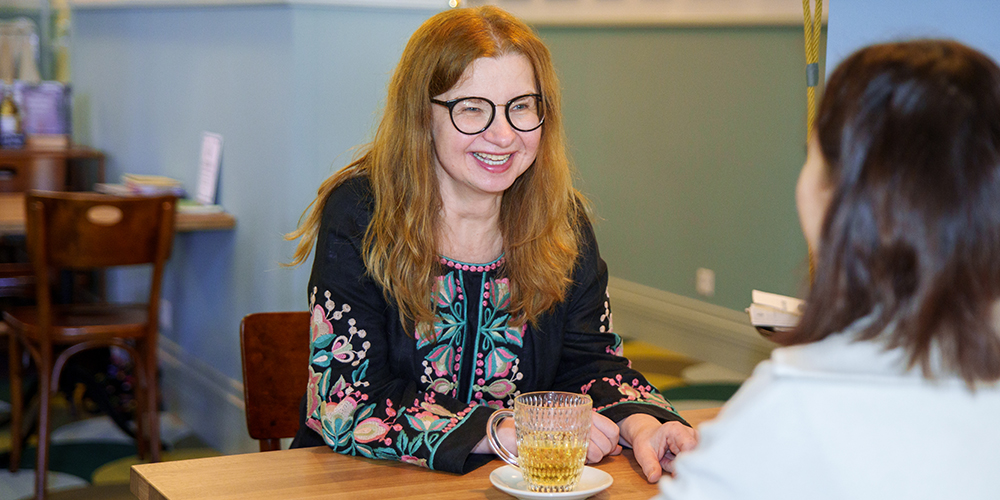From an early age interested in politics
Stefanie Bailer's research revolves around the relationship between citizens and members of parliament. For example, she wants to find out why people are increasingly losing trust in politicians and what role their self-presentation on social media plays.
Politics was practically ingrained in Stefanie Bailer from childhood. Her father worked as an editor-in-chief for the local newspaper, and her grandfather and uncle were also journalists. «That was the classic political socialization, discussing politics as a family every evening around the kitchen table», she recalls her childhood in the city of Baden-Baden at the foot of the Black Forest.
Focus on human factors in parliament
It's no wonder that Bailer chose a career in political science: after completing her studies and doctoral thesis at the University of Konstanz, Groningen, and Ann Arbor, she initially worked as a lecturer and research associate at the University of Zurich, and later as an assistant professor at ETH. In 2015, she was appointed professor of Political Science at the University of Basel. Her research there primarily focuses on the work of parliamentarians in Switzerland and Europe: How do they secure their re-election? What career paths do they pursue, and what impact does it have on their success? How do they communicate with citizens?
«I have more than enough ideas about politics still to analyze», says Bailer. The thematic diversity and innovative methods of her research projects testify to this. For example, she examined how members of the Swiss Parliament are influenced by interest groups. For this purpose, together with a doctoral student, she analyzed hundreds of thousands of data points on meetings between parliamentarians and lobbyists and linked them to subsequent political initiatives in parliament. The result: personal contact with interest groups influences the actions of politicians.
What kind of politicians do citizens want?
In another project, Bailer also utilizes the recently available capability to analyze larger datasets, collaborating with computer scientists from the University of Basel. The study examines the type of photos that politicians use, including women, to present themselves on Twitter with the goal to make the best impression. For instance, it explores whether the electorate responds better when a member of the National Council smiles or not, or whether a candidate for the Council of States should portray themselves in a private or professional setting. Bailer finds the self-presentation of female parliament members and their external impact compared to male colleagues particularly intriguing.
Closely linked to these questions is the Weave project funded by the Swiss National Science Foundation. Together with a research group from the University of Frankfurt am Main in Germany, Bailer aims to get to the bottom of a current phenomenon: «Trust in politicians is declining across Europe, including Switzerland.» Using large-scale surveys and survey experiments, the researchers now want to determine the reasons behind this. «In initial preliminary studies, we have found remarkable results», says Bailer. «For example, it is positive to see that voters consider good performance by a politician more important than having the same gender and age as themselves.»
The latest endeavor is a collaboration with the Basel Institute on Governance, associated with the University of Basel. On behalf of the Bulgarian government, Stefanie Bailer and her postdoc Maria Thürk aim to develop concepts to combat corruption and money laundering in Bulgaria. «We are considering means to encourage people to report such behavior and regain trust in politicians», explains Bailer.
Making science accessible to everyone
When choosing her projects, Bailer demonstrates a keen sense of which topics are currently socially relevant. Newspapers and television often rely on her expertise to provide insights into current political events, such as the latest developments on Twitter or the prospects of women with families in politics. Bailer can also inspire young people to engage with such questions, as is evident by the success of the Political Science program, in which she played a significant role in its conception. «Within a few years, it has become one of the most popular subjects in the social sciences, with around 350 students», she explains.
Further Links
- Department of Political Science at the University of Basel
- Election Campaigning on Social Media: Tweet Style Can Determine Voters’ Choice
- Making politics visual
- When and why do citizens distrust politicians? The role of the representative function
- Influence of lobby groups on parliamentary work
- Basel Institute on Governance
- Stefanie Bailer in the Uni News




